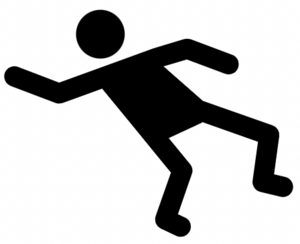Dementia Fall Risk Fundamentals Explained
Dementia Fall Risk Fundamentals Explained
Blog Article
The Buzz on Dementia Fall Risk
Table of ContentsThe 20-Second Trick For Dementia Fall RiskNot known Facts About Dementia Fall RiskDementia Fall Risk Things To Know Before You BuyA Biased View of Dementia Fall RiskDementia Fall Risk Things To Know Before You Get This
You could be anxious because you have actually had a loss before or because you have actually discovered you're beginning to feel unstable on your feet. You could have discovered adjustments to your health and wellness, or simply seem like you're reducing a little. Whatever the reason, it isn't uncommon to become mindful and lose self-confidence, and this can stop you doing things you made use of to do and make you feel extra isolated.If you have actually had a fall or you've begun to feel unsteady, inform your doctor also if you really feel fine or else. Your medical professional can examine your equilibrium and the way you walk to see if renovations can be made. They may have the ability to refer you for a drops risk evaluation or to the drops prevention service.
This info can be obtained with meetings with the individual, their caregivers, and a review of their medical documents. Begin by asking the private regarding their history of falls, including the regularity and conditions of any recent drops. Dementia Fall Risk. Inquire concerning any wheelchair troubles they might experience, such as unsteady or difficulty walking
Conduct a detailed review of the individual's medicines, paying specific interest to those recognized to raise the risk of falls, such as sedatives or medications that lower blood pressure. Figure out if they are taking numerous drugs or if there have actually been current adjustments in their drug regimen. Evaluate the individual's home environment for potential hazards that could enhance the risk of falls, such as poor lighting, loose rugs, or absence of grab bars in the bathroom.
Indicators on Dementia Fall Risk You Should Know
Overview the person with the fall threat evaluation form, describing each question and videotaping their reactions properly. Calculate the complete danger score based on the actions provided in the evaluation kind.
This plan might include exercise programs to boost strength and balance, drug adjustments, home adjustments, and references to other experts as required. Frequently check the individual's development and reassess their threat of falls as needed. Customize the treatment strategy based on modifications in their wellness standing or home environment. Offer recurring education and learning and support to promote safety and decrease the danger of drops in their day-to-day living tasks.
Lots of research studies have shown that physical therapy can aid to lower the threat of dropping in adults ages 65 and older. In a new study (that looked at drops threat in ladies ages 80 and older), researchers calculated the financial influence of selecting physical therapy to stop falls, and they found that doing so conserves $2,144, consisting of all the concealed costs of your time, pain, missed out on life events, and the dollars spent for services.
Not known Incorrect Statements About Dementia Fall Risk
Examining your equilibrium, strength, and walking capacity. A home safety evaluation. Based on the analysis my blog results, your physical therapist will create a strategy that is tailored to your particular requirements.
Older grownups that have difficulty walking and speaking at the very same time are at a higher danger of dropping. Dementia Fall Risk. To aid increase your safety during everyday tasks, your physical specialist may design a training program that will challenge you to preserve standing and strolling while you do an additional job. Instances include walking or standing while counting backward, having a conversation, or bring a bag of groceries
Your physiotherapist likewise can identify which activities you should avoid to stay safe. Community-based falls prevention programs help people to: Decrease their worry of falling. Set goals for enhancing their physical activity. Make their homes much safer. Exercise much more to increase their stamina and equilibrium. These programs frequently are led by volunteer instructors.
The Basic Principles Of Dementia Fall Risk

Measles, or rubeola, is an extremely infectious, severe viral infectious disease caused by the measles infection. Some individuals think about measles as just a breakout and high temperature that gets rid of up in a few days; however, measles can cause significant wellness problems, particularly in children more youthful than 5-years-old. The most effective security against measles is the measles, mumps, and rubella (MMR) vaccination.
Autumns are a common root cause of injury amongst older adults. According to the CDC, in one year alone, fall-related injuries added to over $50 billion in medical costs (Dementia Fall Risk). In hospital setups, older Website adults go to especially high danger of falls due to the fact that their decreased mobility from being constrained to a space or bed.
The 20-Second Trick For Dementia Fall Risk

She has a medical history of seizure condition and high blood pressure. She is receiving an IV infusion and taking Gabapentin and Lasix. She has no background of drops, her gait is stable, and she invalidates with no issues. The previous nurse states that she calls for help to the washroom when she needs to go.
Examples of common fall interventions/measures include: Ensuring a patient's important items are within reach. Past recognizing just how to make use of the Johns Hopkins Loss Danger Evaluation Tool, it's important that centers incorporate its usage into an extra extensive autumn avoidance strategy.
Report this page